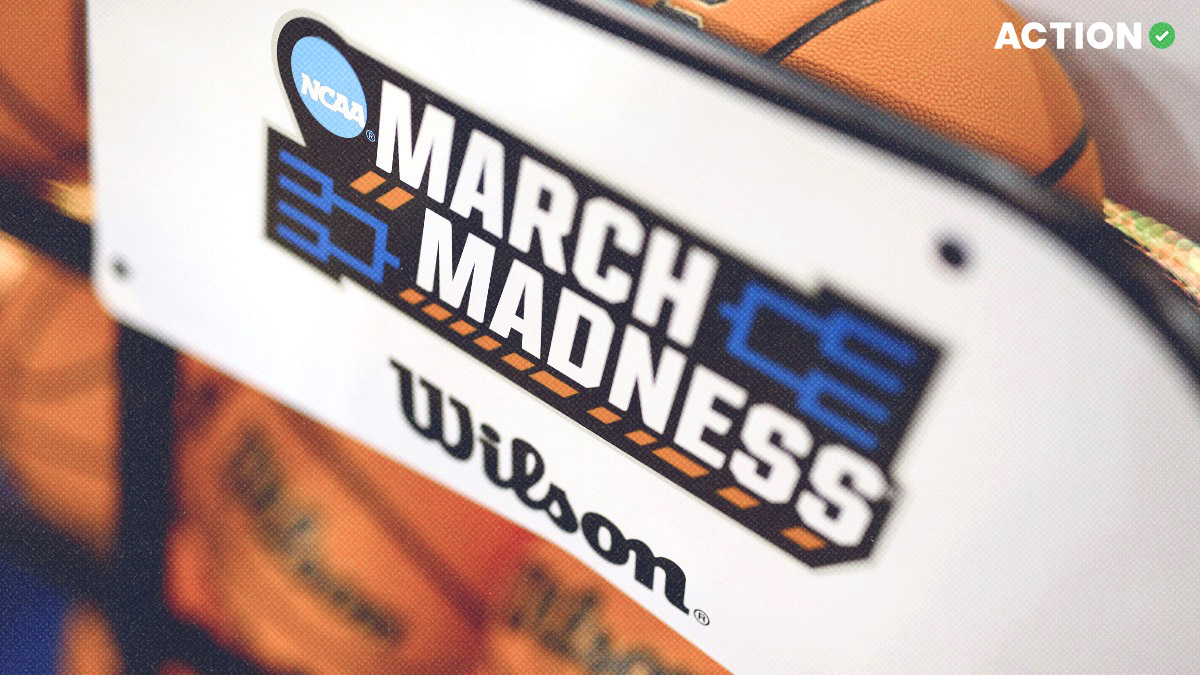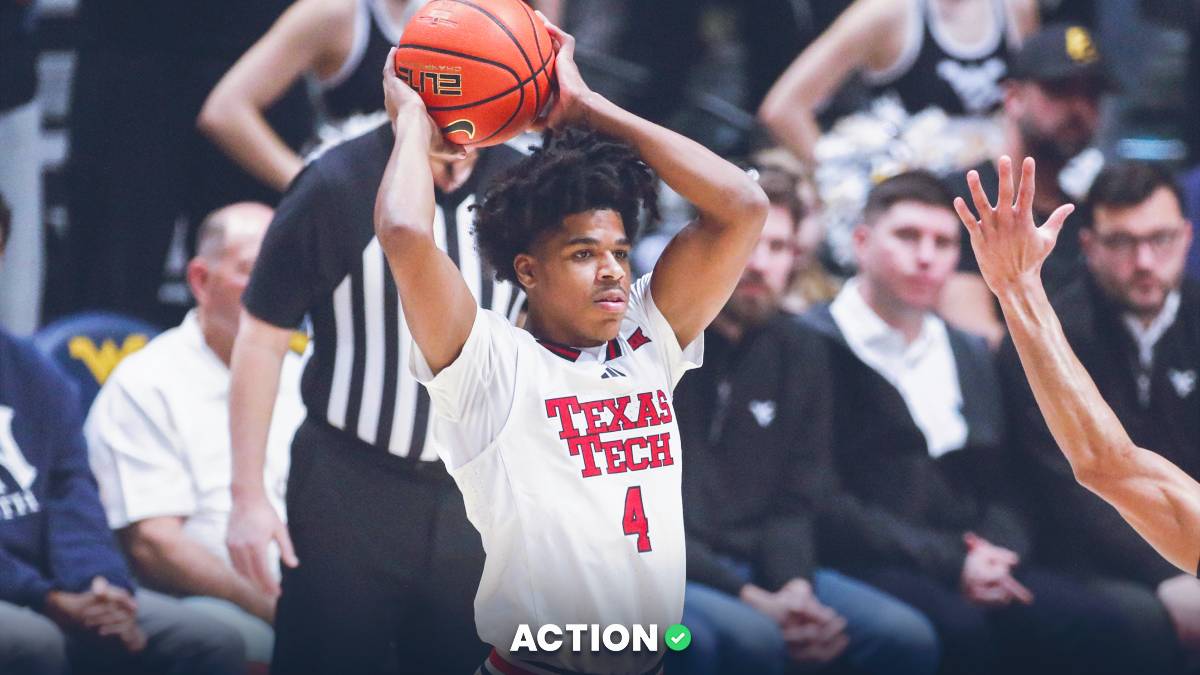This is a guest post from PoolGenius, whose expert bracket picks and tools have helped subscribers win over $2.1 million in prizes.
As soon as the NCAA bracket is unveiled on Selection Sunday, hordes of March Madness enthusiasts will plunge into crafting their 2024 bracket picks. The majority, though, unknowingly use flawed methods for making their selections.
Contrary to popular belief, prevailing in a bracket pool isn't merely a roll of the dice. Employing a data-driven pick strategy for your 2024 NCAA bracket can significantly amplify your chances, doubling or even tripling your odds to take home the spoils. We've got the data to prove it.
The challenge for most bracket pickers is that figuring out the best bracket strategy for their pool demands a lot of information and math.
If you don't have the quant chops to compute round-by-round advancement odds for each team or the coding skills to run thousands of bracket pool simulations, you're at a disadvantage to opponents armed with those tools.
Even if you're not a math whiz, though, following a few general guidelines can still give you a solid leg up on your friends, family, and coworkers in your 2024 March Madness pool.
Get Expert Bracket Picks Now
First, a quick FYI. If getting a Ph.D. in bracket strategy isn't feasible before your picks are due, there is a way to get meticulously researched expert brackets for 2024 at the click of a button.
PoolGenius provides ready-to-play brackets customized for your pool, along with the most comprehensive suite of 2024 bracket projections, analysis tools, and data.
NCAA Bracket Picks from PoolGenius »
Principles Of Bracket Pool Strategy
Winning NCAA bracket strategy boils down to a few core principles. They include:
- Understanding your pool's scoring system
- Assessing both the risk and value of each pick
- Adjusting strategy for the size of your pool
- Avoiding popular "Golden Rules" for bracket picking
In this article, we'll take a deep dive into the first strategy principle above, and show why and how your pool's scoring system should influence the bracket picks you make.
If you'd like to take a deep dive into all four topics above (and more), you can check out the free bracket strategy guide on PoolGenius, which compiles all of our bracket articles and research.
Before You Make Picks, Know The Rules Of Your Pool
Set aside bracket pools for the moment, and think about how teams score points in college basketball. A made field goal typically nets two points, with the exception of a three-pointer, which carries a 50% higher value.
How does that scoring system influence strategy? For one, taking a shot from just inside the three-point line when left open by the defense is almost never a smart choice. The risk of missing remains similar to slightly longer shots, but the potential reward is much lower compared to taking half a step back and attempting a three-pointer.
Once basketball analytics gurus began to better understand optimal shot selection, many teams adopted an offensive strategy that revolves around either three-point attempts or close-range shots, at the expense of midrange two-point jumpers.
To maximize your edge in your 2024 bracket contest, you need to apply a similar level of strategic thinking to the process of making your picks.
Bracket Strategy For Traditional Scoring
The most commonly used NCAA bracket pool scoring system awards the following number of points for a correct pick in each successive round: 1-2-4-8-16-32. That means the most valuable picks all come in the later rounds.
Even though each round is worth the same number of total points (32), the distribution of possible outcomes becomes more binary and extreme in the later rounds.
For example, the First Round has 32 different games to pick. As a result, every player in your pool will almost certainly get several First Round picks wrong; it's extremely unlikely to go 32-for-32. When the dust settles, in traditional scoring, the difference between a good and not-so-good First Round might be a total of five or seven points.
Your NCAA champion pick, on the other hand, is a single pick that's either going to net you 32 points or zero points in the final round. In addition, if you add up all the points that a successful NCAA champion pick will win you on its path to the title, it totals a whopping 63 points.
The outcome of your champion pick is far more likely to determine whether you win or lose your pool than all the other first and second round picks combined. And how your bracket performs in the Final Four games and beyond has an outsized impact on your final score.
Even if you have a fantastic First Round, that early lead of yours can easily end up disappearing by the end. You're highly unlikely to win a pool with a 1-2-4-8-16-32 scoring system unless some of your late-round picks come through.
So in the limited amount of time between Selection Sunday and the start of the First Round on Thursday, focus on optimizing your picks for the final few rounds, and don't get caught up in all the First Round upset pick hype.
Bracket Strategy For Non-Traditional Pool Scoring Systems
What if they changed the rules of college basketball, and layups from the left side of the key (but not the right) were suddenly worth six points instead of two points?
In that case, you would expect any smart coach to revamp their team's offensive and defensive strategies. They would implement new offensive schemes designed to get a shooter open on the left side of the court, and the resulting game would look much different to spectators.
Implementing a rule change of such magnitude may seem unfathomable for actual basketball. But when it comes to bracket pools, variations in scoring systems with comparable impact occur frequently, and most players fail to adjust their picks based on the implications.
In essence, they persist in taking numerous shots from the right side of the key, oblivious to the fact that shots from the left side are worth three times as much.
In unconventional scoring systems, seizing an advantage over your bracket pool adversaries involves throwing away any assumptions you may have about how to pick a bracket. It poses not only a strategic challenge but also a psychological one.
Let's review a few specific examples.
Pick Strategy For Flatter Scoring Systems
One alternative round-based scoring system awards 1-2-3-4-5-6 points per correct pick, by round. That's a very different point structure than 1-2-4-8-16-32, so your pick strategy needs to change accordingly.
In 1-2-3-4-5-6 scoring, the First Round is still worth a total of 32 points, the same as in the traditional system. But correctly picking a team to make the NCAA championship game (which is difficult to do) is only worth five points. That's barely more than getting a Sweet 16 pick right in traditional scoring.
Another scoring system popular in nerdy circles is the Fibonacci sequence (2-3-5-8-13-21), which is named after a badass 13th century Italian mathematician.
Both in Fibonacci and 1-2-3-4-5-6 scoring, early round pick performance is more likely to be a difference-maker in determining the pool’s eventual winner. So it generally pays to be more aggressive making contrarian value picks in the earlier rounds.
Evaluating Risk vs. Reward In Bracket Pools
There's a key point here that deserves more focus. Being aggressive with upset picks in the early rounds is often the kiss of death in pools with traditional 1-2-4-8-16-32 scoring. The calculus behind that proclamation all boils down to measuring risk and reward.
The worst case outcome of making a First or Second Round upset pick in the traditional scoring system isn't that you get the pick wrong, and miss a point or two from that round. That's not going to hurt your chances to win that much, in isolation.
The worst case scenario is that you get an early upset pick wrong, AND the more popular, higher seeded favorite that wins the game goes on to make a deep run in the tournament.
If that happens, many of your opponents could score a lot of points that you miss, and your incorrect early upset pick might end up costing you an in-the-money finish, even if you join some of them in getting the champion pick correct.
In the traditional scoring system where late-round games are worth 16 times or 32 times as much as First Round games, picking even just a few early upsets that do not materialize can significantly decrease your odds to win your pool. So be very careful about doing it.
In flatter scoring systems, though, the negative impact of missing points on later-round picks decreases significantly, and the worst case scenario of a bold early-round pick strategy gets, for lack of a more elegant phrase, a lot less worse.
Pick Strategy For Upset Bonus Pools
If your bracket pool offers bonus points for correctly picking seed-based upsets (or more generally, for picking lower-seeded teams to advance), strategy changes yet again.
We’ve run millions of computer simulations of NCAA bracket contests, and we've studied the performance of many different pick strategies across tens of thousands of real-world pools. The results clearly demonstrate one thing.
Most players in bracket contests with upset bonuses aren’t nearly as aggressive as they should be when it comes to making riskier upset picks. It's the exact opposite situation as traditional scoring, in which many players pick too many upsets.
In upset bonus pools, mathematically optimal picks tend to produce a bracket that looks pretty insane to a more casual bracket picker. When most people take a look at the brackets we recommend for upset bonus pools, their reaction often varies between shock and ridicule.
“Look at all these double digit seeds in the Sweet 16!" they exclaim while coughing up their carne asada burrito. "That’s absurd! It's never happened, and there's no way it's going to happen this year!”
Those people display a fundamental misunderstanding of bracket strategy. The goal is not to try to pick a perfect bracket, that looks exactly how the 2024 NCAA tournament ends up playing out. (The odds of doing that are infinitesimally low.)
Rather, the goal is to take the calculated risks that give you the best chance to outscore all of your opponents. In upset pools, that often means more of a spray-and-pray strategy. You expect to get fewer correct picks, but you will get way more points when each of your upset picks hits.
The Best Bracket Strategy In 2024
Understanding the implications of your bracket pool's scoring system is crucial for maximizing your edge, but it's just one facet of winning bracket strategy.
Considerations such as your pool's size and payout structure also influence strategy. So does understanding when to take extra risk to differentiate your picks from the popular favorites. After all, you can only win a bracket pool if you get at least one pick right that your opponents miss.
That's why we built the world's first bracket optimizer. You provide a few details about your 2024 NCAA bracket contest, and in seconds, it generates ready-to-play brackets that give you the best chance to win. WIRED even wrote about the technology behind it.
With PoolGenius in your corner, you don't need to know the first thing about college basketball (or math) to maximize your edge in March Madness pools. And it's proven to work. PoolGenius subscribers report winning bracket pool prizes 3.1x as often as expected, and on average, 51% of subscribers win a bracket pool prize each year.<
If you are numbers junkie, the product also includes the most comprehensive suite or 2024 bracket projections, data, and matchup analysis tools.
Click below to check it out, and get a special 40% discount for Action Network readers:
NCAA Bracket Picks from PoolGenius »
40% Off for Action Network Readers





















































